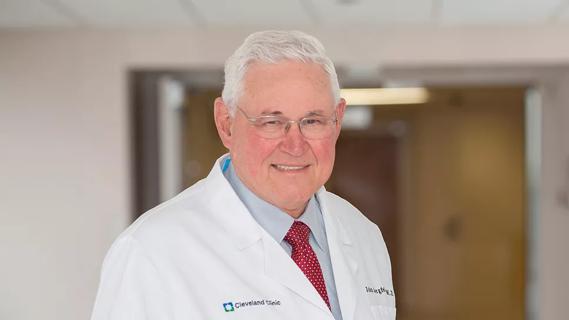Reducing prescriptions may help keep unused medication out of the community

The opioid epidemic is a well-documented crisis in the U.S., yet clinicians lack evidence-based guidelines for prescribing opioids after most orthopaedic surgeries. Now new research published in the American Journal of Sports Medicine has found that most patients recovering from simple arthroscopic knee surgery need no more than four pills for pain management.
Advertisement
Cleveland Clinic is a non-profit academic medical center. Advertising on our site helps support our mission. We do not endorse non-Cleveland Clinic products or services. Policy
Researchers also found that opioids are widely overprescribed for this procedure, with many physicians sending patients home with significantly more pills than they take. In fact, according to the study, a large segment of patients takes no pills at all.
“With orthopaedics and sports medicine, we have a great impact on patients’ quality of life, but we typically don’t save lives,” says study author Michael Scarcella, MD, an orthopaedic sports medicine surgeon at Cleveland Clinic. “This research has the potential to save lives by minimizing the amount of excess opioids that are available to patients and their communities.”
For the study, researchers followed 174 patients who underwent simple arthroscopic knee surgery. Patients undergoing revision surgery, concomitant complex surgery, open surgery for removal of hardware, or bilateral knee surgery were excluded. Researchers also excluded patients who were already using opioids.
After surgery, all patients were prescribed 10 pills, each with a combined dose of 5 mg hydrocodone and 325 mg acetaminophen. When patients returned for their first postoperative visit, they were asked to report how many pills they had taken. Reports varied widely. While many patients took no medication at all, one patient took as many as 19 pills after requesting a refill on the original prescription. (This patient was an outlier and the only patient requesting a refill.)
However, out of the whole group, the median pill count was just two. That’s because most patients took few pills, with 59% taking between zero and two. Of the remaining “high consumption” group, only 23 patients, or 13% of the total, took six or more pills.
Advertisement
Preoperative pain, as measured by the Knee Injury and Osteoarthritis Outcome Score (KOOS) for pain, was a significant risk factor for higher opioid consumption.
Dr. Scarcella said he was surprised that the median consumption was so low.
“A large majority of the world’s opiates are consumed in the United States, so I anticipated that patients would have a low threshold to consume opioids,” he says. “I was surprised by how many people took none and how many people took only up to four. This signifies to me that we need to modify our prescribing range.”
He noted that previous research (and here and here) showed that some physicians prescribe as many as 10 to 20 pills after simple knee surgery.
“It’s estimated that 60% of these opioids will go unused,” he says. “When you do the math, that’s 3-6 million unused opioids in the community per year, just from arthroscopic knee surgery.”
Research also indicates that larger prescriptions will lead some patients to take more medication, noted Martina Hale, a second-year medical student at Cleveland Clinic Lerner College of Medicine and a member of Dr. Scarcella’s research team.
“Sometimes patients just finish the prescription,” she says. “If there are 10 pills prescribed, they’ll take all 10 even if their pain has already been controlled.”
Some patients push their doctor to prescribe narcotics even if they don’t feel they need them for comfort, she added. Still others say that if they are not given a refill, it will affect their satisfaction with the outcome of their surgery.
Advertisement
“This points to the importance of patient education about pain management in addition to setting more evidence-based guidelines for providers,” says Hale.
Dr. Scarcella said his team of researchers started with arthroscopic knee surgery because it’s a common procedure that would quickly yield meaningful data. Next, the team plans to conduct similar studies for other common arthroscopic surgeries, including shoulder, hip and ACL. They also want to study ketorolac, a nonsteroidal anti-inflammatory drug, as an alternative to opioid medications for pain after these surgeries.
“Combatting the opioid crisis will take continued effort and collaboration across medical specialties and across generations of providers,” concludes Dr. Scarcella.
Advertisement
Advertisement

Largest cohorts to date reveal low rates of major complications

Sports medicine pioneer John Bergfeld, MD, shares how orthopaedics has changed since doing his first ACL repair in 1970

Clot substitute helps rejoin the stumps of a torn ligament

Multidisciplinary care can make arthroplasty a safe option even for patients with low ejection fraction

Expert urges action to mitigate the tragedy of fatal overdose

Self-care may be just as effective for some patients

Most return to the same sport at the same level of intensity

Higher than 5-year rates for prostate cancer and melanoma and about the same as breast cancer